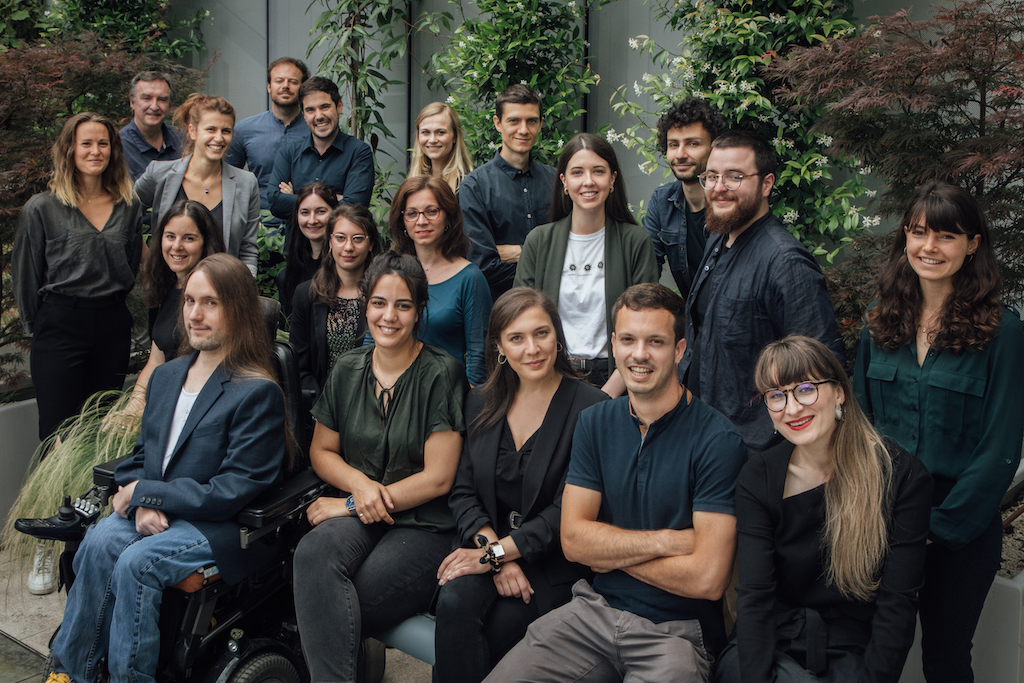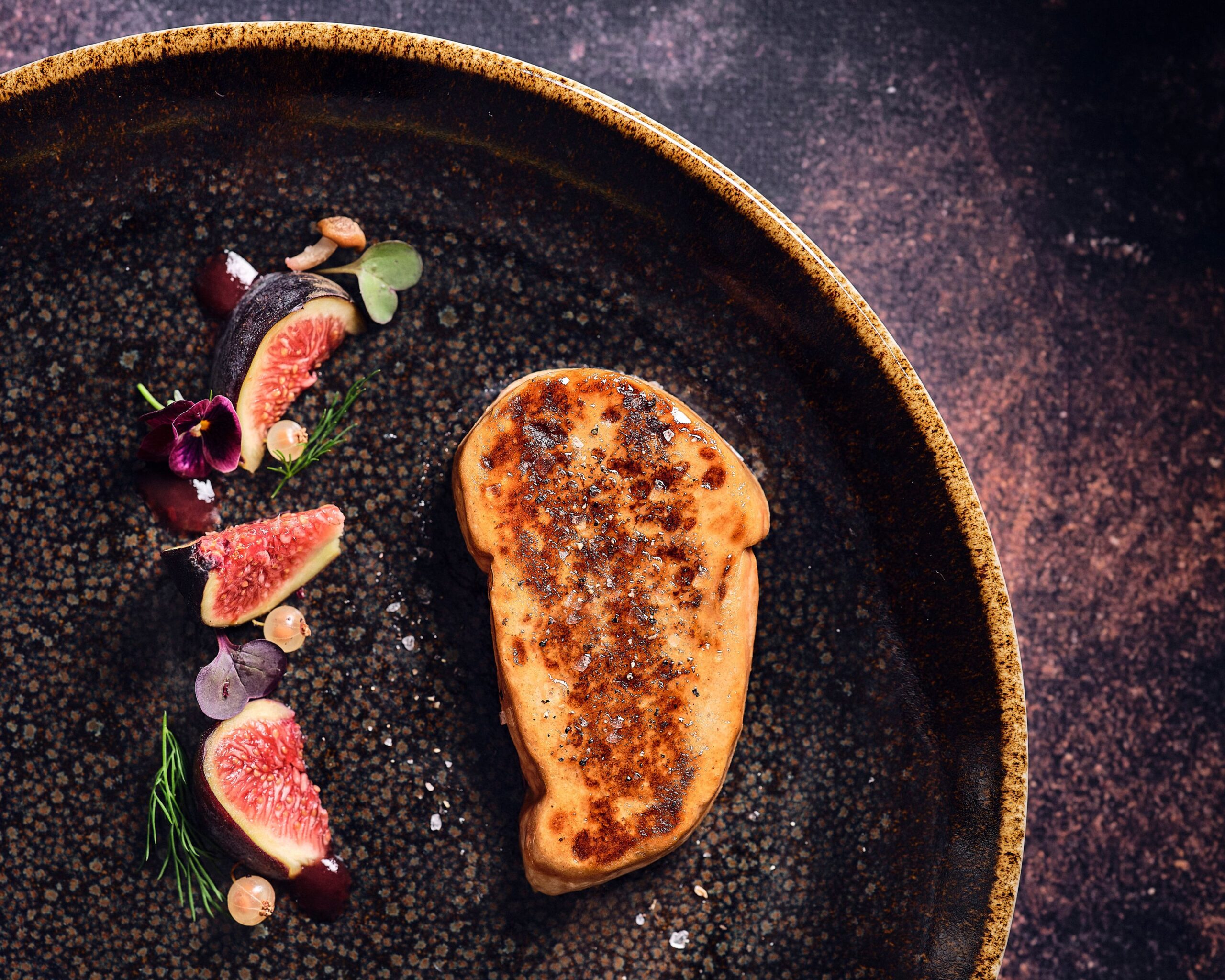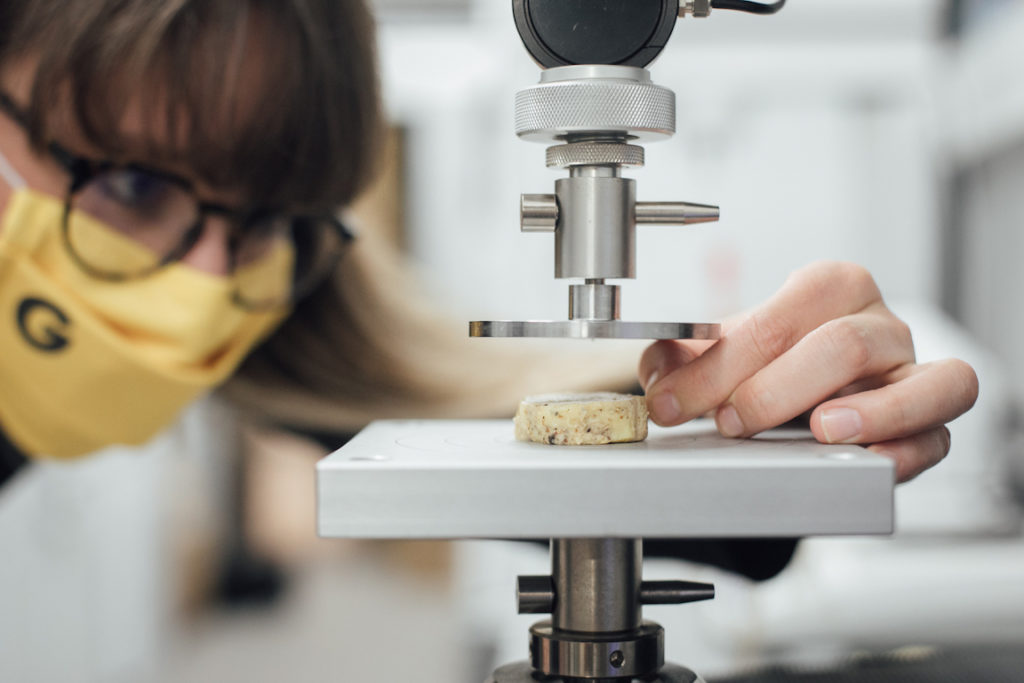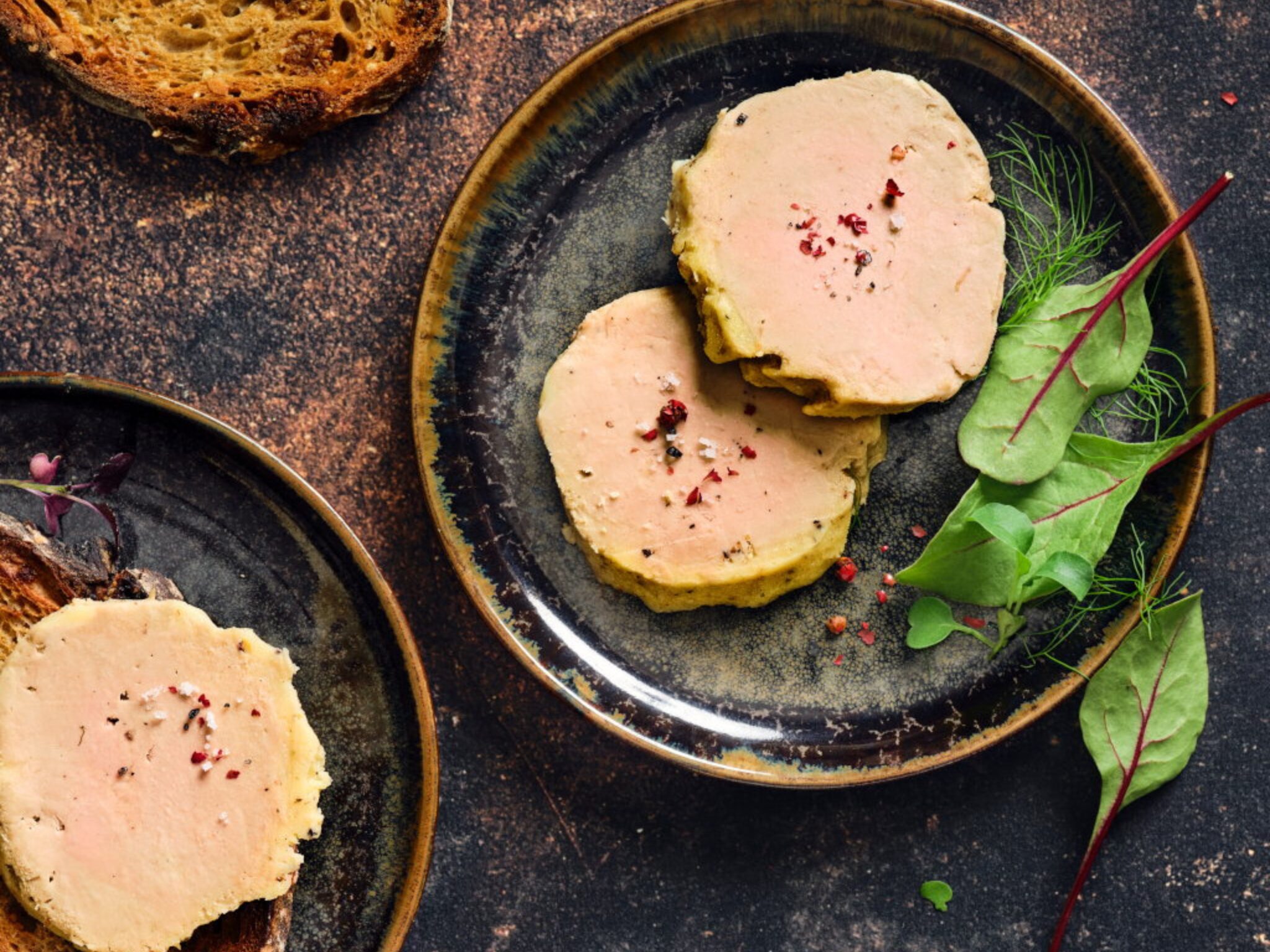French Cultivated Foie Gras Maker Gourmey Files for Regulatory Approval in EU
7 Mins Read
French cultivated foie gras startup Gourmey has become the first cultivated meat company to apply for regulatory approval in the EU, with dossiers also filed in four other markets.
Gourmey has applied for regulatory approval of its cultivated duck in the European Union, Singapore, the US, the UK and Switzerland.
It marks the first application for cultivated meat in the EU, a major milestone for the industry. The cultivated duck will be used to make foie gras, a French delicacy inundated with animal welfare and environmental concerns.
The Parisian startup has filed dossiers with the European Commission, the US Food and Drug Administration, the Singapore Food Agency (SFA), the UK Food Standards Agency (FSA), and the Swiss Federal Food Safety and Veterinary Office (FSVO).
It plans to offer its cultivated foie gras to chefs and restaurants by 2026. “We look forward to continuing to work closely with the regulatory authorities to ensure full compliance with safety requirements throughout these procedures,” said Gourmey co-founder and CEO Nicolas Morin-Forest.
“We are confident that our products will meet these highly demanding standards, so that everyone who wants to can enjoy new gourmet experiences all around the world.”
So far, only Singapore, the US, Israel and the UK have approved the sale of cultivated meat, with the latter specifically for pet food. The EU’s regulatory framework is regarded as the “gold standard in novel food safety and risk assessment”, according to the startup.
“I am thrilled to see member company Gourmey be the first to submit a dossier to the EU and it comes at the perfect time,” said Robert E Jones, president of industry association Cellular Agriculture Europe. “Europe is in danger of losing its competitive edge on home-grown innovation and we face serious challenges in the food system that can be helped by diversifying protein sources.”
“It’s fantastic to see the first application to sell cultivated meat in the EU has been submitted,” said Seth Roberts, senior policy manager at alternative protein think tank the Good Food Institute Europe. “This demonstrates that food innovation can coexist alongside our culinary traditions, providing consumers with foie gras made in a way that could reduce environmental impacts and animal welfare concerns, support investment and provide future-proof jobs.”
A future-facing solution to a controversial tradition

Founded in 2019 by Morin-Forest, Jérôme Caron and Antoine Davydoff, Gourmey has so far raised €65M via public and private investments. This includes a then-record €48M Series A round in 2022, which was used to open a first-of-its-kind 46,000 sq ft cultivated meat hub and commercial production facility in Paris.
It describes itself as France’s first cultivated meat company, and has taken on an iconic – and hugely problematic – food.
Foie gras is up there with caviar and bluefin tuna as the world’s most exclusive and highly prized food items. But each comes with its problems. Foie gras is associated with the force-feeding of geese and ducks, which can damage the livers of the birds and lead to a painful disease called hepatic lipidosis.
Such animal welfare concerns have prompted over a dozen countries to ban foie gras production, including India, Argentina, Germany, Italy, Norway, Poland, and Turkey. Even in France, three-quarters of consumers are uncomfortable with the force-feeding involved.
And that’s all before you consider the climate impact of raising birds and growing enormous amounts of corn to (over)feed them, only to slaughter them for human consumption in the end. Gourmey’s version, meanwhile, “significantly lowers the environmental footprint compared to conventional production in the same product category” according to a study commissioned by the company that anticipates at-scale production. Sustainability wins would include reduced greenhouse gas emissions, land and water use.
Still, it continues to have its proponents. As we speak, it’s being served at the Olympics in Paris, despite what has been touted as the “most sustainable” Games ever, because it’s serving 60% meatless food. This has sparked widespread protests by animal activists, including prominent figures like actress Kate Mara.
Feeding the premium culinary market

While most cultivated meat companies have focused on more common meat products like beef and chicken, there is an argument for targeting higher-end foods like foie gras.
Foie gras, of course, is no novel food, but this iteration of the product is. And at a time when costs remain prohibitively high for cultivated meat, targeting the premium end of the market makes more sense financially. It also provides a solution – and contrast – to a country whose gastronomic identity has relied on ingredients mire don controversy, and whose lawmakers have been seeking to ban cultivated meat.
“The premium segment has always been at the forefront of food trends, where the most exciting innovations occur,” said Morin-Forest. “We are witnessing thrilling commercial traction for our first product in many regions where chefs want to keep serving high-quality foie gras.
He added: “Starting with haute-cuisine acts as a catalyst for our future product launches, with chefs serving as the best ambassadors to introduce new product categories to consumers and drive sustainability.”
There are other examples of companies targeting premium meats in this space too. Take Australia’s Vow, which makes cultivated quail as part of a parfait. It became the fourth company to be approved for sale earlier this year, after receiving the green light from the Singapore Food Agency.
“By changing the process of production, rather than the food itself, you are asking consumers to change their behaviour for the benefit of the planet alone. Despite what we’d like to believe, those externalities don’t matter as much as we think to a vast majority of consumers when it comes to purchasing,” its founder George Peppou told Green Queen in April.
“The only way for us to change our behaviour is to offer new foods that consumers choose selfishly. That’s why Vow is different, because we innovate instead of imitating, and therefore offer something that consumers will selfishly choose, because it is deliberately different.”
A giant leap amid rising polarisation

The EU application is a landmark moment for the six-year-old startup, as well as the nascent industry it’s in. For years, this region has been the toughest regulatory nut to crack, thanks to an extremely complex and stringent novel food framework that drove many companies to explore other markets first.
Other EU players like Meatable (pork), Mosa Meat (beef) and Vital Meat (chicken) have all looked to Singapore, for example, which was the first country to give the all-clear (to Eat Just’s GOOD Meat for chicken). The US (GOOD Meat and Upside Foods, also chicken) and Israel (Aleph Farms, beef) have approved cultivated meat for sale too, and earlier this month, even the UK – a former EU member that for so long continued to follow EU regulations – gave the go-ahead (for pets).
Israel’s Aleph Farms has filed for approval in Switzerland and the UK too, while Vital Meat is also awaiting approval in Britain. Meanwhile, South Korea is now accepting applications after developing a framework earlier this year, for example, while India is establishing guidance for approvals as well.
Gourmey’s application in five markets is a major statement about its global ambitions. It has indicated that it will also be actively engaged in Asian countries like Japan and South Korea (in addition to Singapore), where consumers have displayed a willingness to try these foods.
The EU’s approval process will include a thorough and evidence-based assessment of the safety cultivated meat, and is set to take at least 18 months.
The EU Commission and member states play a role in the approvals process with input from scientific experts at the European Food Safety Authority (EFSA), which ensures that the authorisation retains the buy-in of all stakeholders. Once the EU approves a cultivated meat product, it can be sold across all 27 EU members and EEA countries.
A recent survey of 16,000 citizens from 15 EU countries found that Europeans are largely in favour of cultivated meat if it passes safety assessments from food regulators, and a majority are willing to try the novel food.
One major challenge is the increasing politicisation of cultivated meat. US states of Florida and Alabama have banned cultivated meat. Other countries and states are making similar moves, including Italy and France.
According to certain regulatory experts that Green Queen spoke to, Italy’s ban on cultivated meat production and marketing “is flawed and potentially unenforceable, because the adoption of the law did not comply with the procedure under EU Directive 2015/1535, the so-called TRIS Procedure”. The latter is intended to “stop regulatory barriers arising within the EU’s internal market”.
Moreover, the current Italian government’s position on cultivated meat is not necessarily one shared by the majority of its citizens. Polling by GFI Europe found that “53% of Italians think cultivated meat should be made available in their country- if regulators found it was safe to eat”.
“There’s a lot of polarisation… we need to really have a science-based conversation and public dialogue, nothing that is too ideologically driven,” Morin-Forest told Politico. “These types of food will be part of the diets of the next years and as a European invention, [with] several European champions, we really need to preserve this technological sovereignty.”
“Diversifying protein production is crucial for sustaining food security and contributing to sustainability objectives such as decarbonisation and biodiversity,” he added. “Integrating cultivated food production into existing agrifood value chains provides a complementary protein source that will contribute to resilient food systems.”
This story has been updated as more details have been released and to add information about Italy’s cultivated meat ban.




